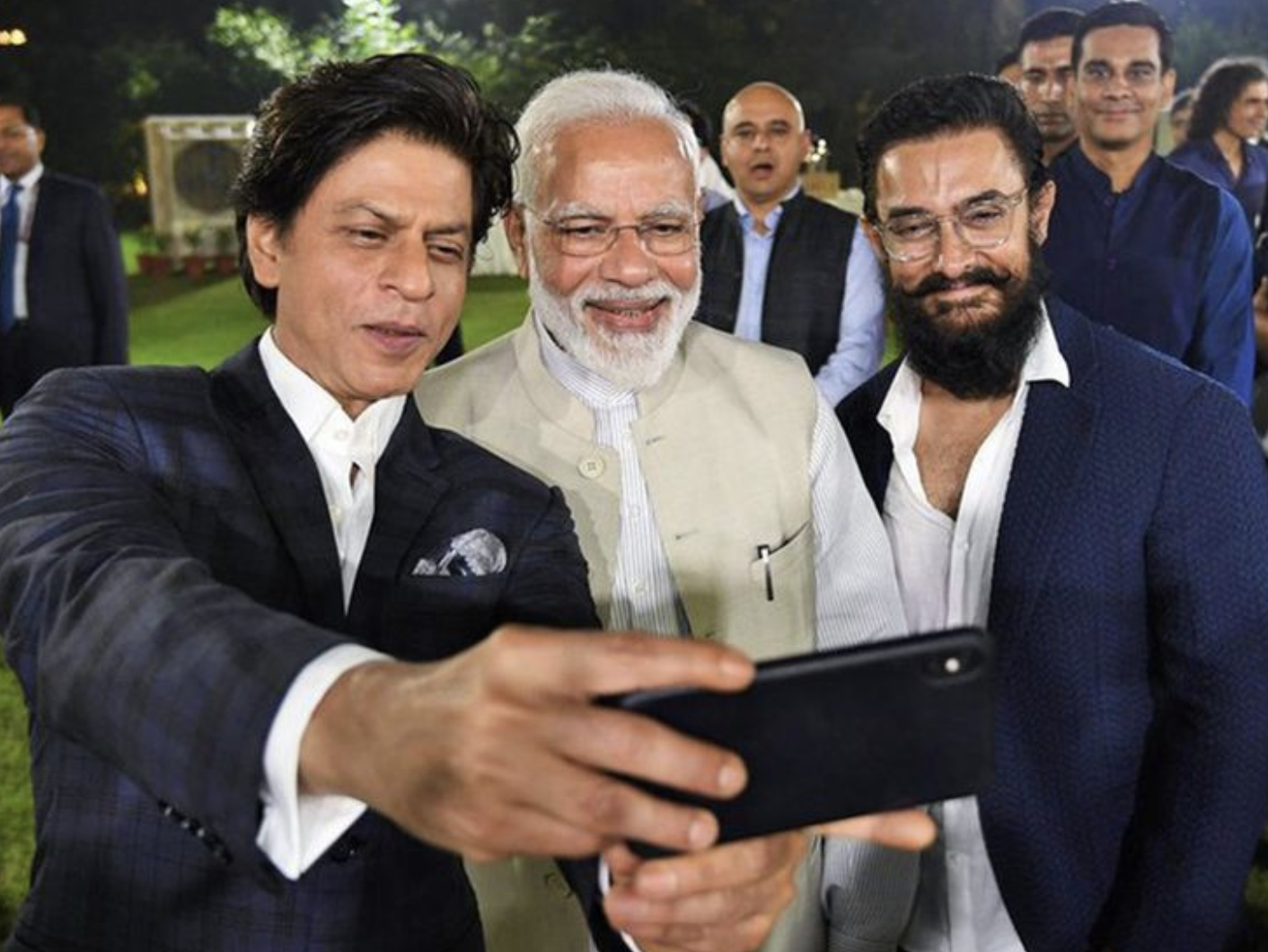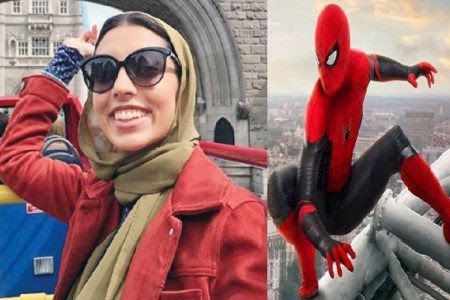Last week, a slew of prominent Bollywood personalities met with Indian prime minister Narendra Modi at an event commemorating Mahatma Gandhi’s 150th birthday. At this meeting, Modi encouraged the actors to participate in and create films which popularise and propagate Gandhi’s ideology – despite Gandhi’s lifelong pursuit of secularism being at odds with Modi’s fervent brand of Hindu nationalism.
The pictures that emerged from this meeting are akin to the infamous “Ellen selfie” from the 2014 Academy Awards ceremony. Snaps of a pastiche of famous faces posing both with each other and with the prime minister aroused a sort of decidedly apolitical excitement among fans, and the images were widely shared on social media.
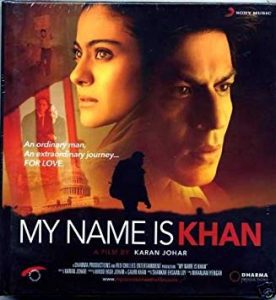
A picture of Modi sandwiched between Muslim actors Shah Rukh Khan and Aamir Khan, however, did cause one Twitter user to raise his eyebrow. “It seems like there is a gun pointing their way. They don’t seem too keen!!” he commented.
For those with a particular investment in Aamir Khan’s political musings, it would indeed come as a surprise that he has even placed himself in the physical presence of Modi. His 2006 film Fanaa, in which he plays a Kashmiri insurgent, was informally banned in Gujarat due to him criticising Modi – then the chief minister of Gujarat – for displacing villagers while constructing the Narmada dam. The ensuing protests headed by the Bharatiya Janata Party (BJP) forced theatre owners in Gujarat to not screen the movie, out of fears for their safety.

The BJP’s disdain for Muslims is not up for debate. It’s undeniable that Aamir’s comments were so ardently scrutinised as a result of his religious persuasion, and perhaps because of the soft pro-Kashmir bent of Fanaa’s storyline. In light of this, the motivations behind his nascent public alliance with Modi appear unclear at best, and unprincipled at worst. Is it necessary for figures like him to alter their public personas, and align with the BJP’s Hindu nationalist narrative in order to succeed in Bollywood?
The apparent shift in Aamir Khan’s attitude is reflective of the duality of Islam in Bollywood. Over the past two decades, “the Khans” (Salmaan, Saif Ali, Shah Rukh and Aamir) have dominated the box office. Their fan base is spread throughout India and globally, encompassing people from a range of cultural and religious backgrounds. One should not, however, mistake the commercial success of the Khans with some broader cultural acceptance of Islam in India or even Bollywood.

For the most part, the popularity of the Khans (and many other Muslim actors) in Bollywood has been facilitated by a process of “Hindufication”. The overwhelming majority of characters they portray are Hindus living in a world with little to no engagement with Muslim communities. In the rare instances that they do play Muslim characters, those characters tend to be exoticised and stereotyped: a Mughal Emporer or an underworld boss.
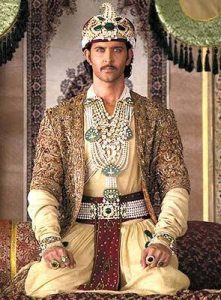
For most fans of Bollywood, it is difficult to abstract the actors from the characters they play. Shah Rukh Khan is Rahul, Aman, or most obviously, Om. The consequence is that for religious zealots, actors like the Khans are Hindu figures in Muslim bodies. Their Muslim identity is de-emphasised to the extent that it falls out of mind. In that context, the decision to make political statements about religious persecution in India poses a predicament for prominent Muslim actors. To do so would shatter the grand illusion and alienate their increasingly radicalised Hindu fan base.
The circumstances are no doubt complex – the anguish of chameleonically adapting one’s religious identity to succeed in a chosen career path is amplified when existing in such a public, global sphere. However, the particular circumstances of the Khans are not as pitiable as they seem.
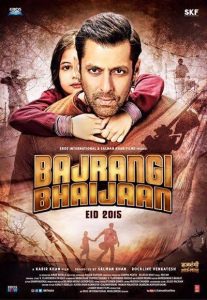
Neither have any pressing monetary need to even appear to be sympathising with the BJP. Shah Rukh, for example, carries a net worth of 600 million US-dollars. The social capital and influence he has amassed in South Asia and beyond is much too pervasive to be limited by what India’s political elite think of him. In fact, it’s arguable that any Muslim actor with so inalienable a rank in India’s cultural and economic domain should instead be actively agitating against Modi and the BJP.
It’s naturally important to acknowledge that, despite their class privilege, the challenges faced by Aamir and Shah Rukh Khan are not ones their Hindu counterparts need even consider. Additionally, both actors have portrayed subversive Muslim characters – for Shah Rukh Khan most notably in ‘Chak De India!’ and ‘My Name is Khan’. Perhaps then it is the openly radicalised and Islamophobic contemporary zeitgeist that is silencing their voices. However, in a context where Muslims are lynched, Kashmir is occupied and Hindu nationalism is creeping into every facet of Indian society, it’s hard not to feel a little disappointed.
– By Pranay Jha and Jessica Syed
The views expressed in this article belong to the author and do not necessarily reflect the editorial policy of Muslim News Nigeria.

